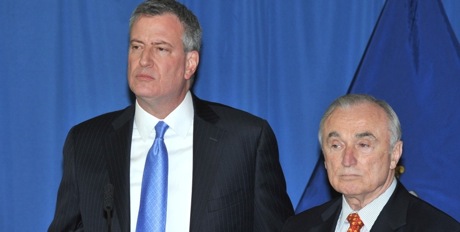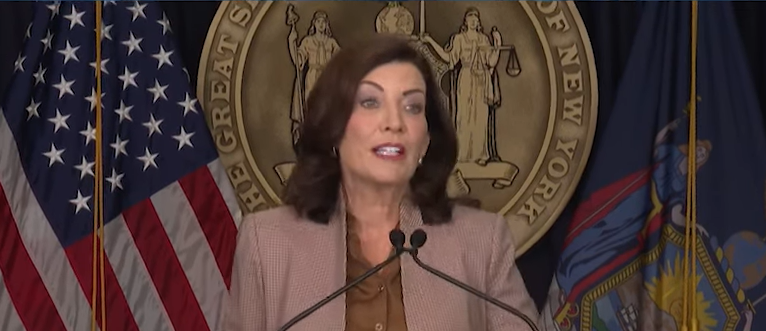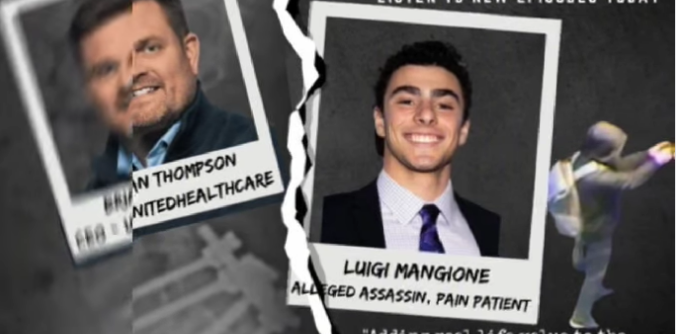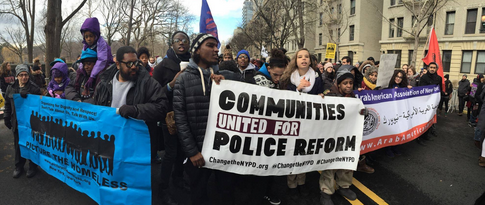De Blasio. New Yorkers rejected stop-and-frisk under Bloomberg. Time to repudiate “broken windows” under Bratton and this mayor
Yesterday thousands of people peacefully marched on Staten Island to repudiate the kind of police brutality that led to the murder of Eric Garner with a chokehold by Daniel Pantaleo a New York Police Department (NYPD) officer on July 17.
Many of the marchers also recalled the brutal killings of Sean Bell, Amadou Diallo and others by police in New York. The march was organized by the Rev. Al Sharpton’s National Action Network (NAN).
The New York protest comes in the wake of continuing protests in Ferguson, MO., following the execution-style killing of 18-year old Michael Brown, an uarmed African American.
In Michael Brown’s case, and in Eric Garner’s case, and the many others, the primary reason why these victims were targeted and killed is racial profiling — the perception by many White police officers that Black males, especially those not dressed in expensive suits, and from low-income background, are predicate criminals.
That’s why there will be many more unjustified killings of Black males by White police officers across the country, in the weeks, months or years ahead unless the issue of racial profiling is tackled head-on.
As our columnist Colin Benjamin persuasively showed in his recent commentary, African American males will always be victims of wrongful police killings so long as the political establishment continues to endorse racial profiling; this includes New York City’s.
As Benjamin wrote: “‘Broken windows’ will ensure Blacks are harassed, in part, because a similar goal seems to lie at its core, as was the goal in Stop-and-Frisk: balancing budgets off the backs of Black with quotas the NYPD tells us don’t exist.”
Benjamin in a separate critique of “broken windows” observed that ultimately, the only solution is community policing — officers that patrol the neighborhoods must come from those communities.
One of the author’s of this elitist “theory” of controlling low-income communities is Prof. George L. Kelling, of the conservative the Manhattan Institute who is also a consultant to the NYPD.
That’s why Mayor Bill de Blasio’s position, embracing the targeting of low-income communities, is extremely disappointing.
It doesn’t bode well for improving relations between the police and African American communities. It means de Blasio is either out of touch with the African American community, which was critical for his election in November, or that he’s now hostage to the police union and the money-establishment that also contributed to his campaign.
The New York Times yesterday reported that de Blasio continues to support the so-called “broken windows” approach to policing, which disproportionately targets people from low-income neighborhoods, primarily Blacks and Latinos.
“It’s about addressing problems at the grass roots consistently and energetically, and we’ll continue to do that,” the mayor said, of “broken windows”.
Addressing problems at the grass roots consistently and energetically means tackling poverty, high unemployment, lack of job training, and abysmal education — attacking the actual roots of the problem not its manifestations.
During the campaign candidate de Blasio spoke passionately about there being “two New Yorks” of the “haves” and “have nots” and why it mist end. Barely seven months into his mayoralty he’s now singing a different tune.
New Yorkers fought the racial profiling of stop-and-frisk. Just because it’s now being referred to as “broken windows” and embraced by Mayor de Blasio and Police Commissioner Bill Bratton doesn’t make this discriminatory and lethal form of policing acceptable.
Now is the time for a vigorous campaign to repudiate “broken windows” the new version of stop-and-frisk. Activists must oppose “broken windows” with the same energy they used to rejecting stop-and-frisk under Mayor Michael Bloomberg.
Let’s not wait for the next victim.







